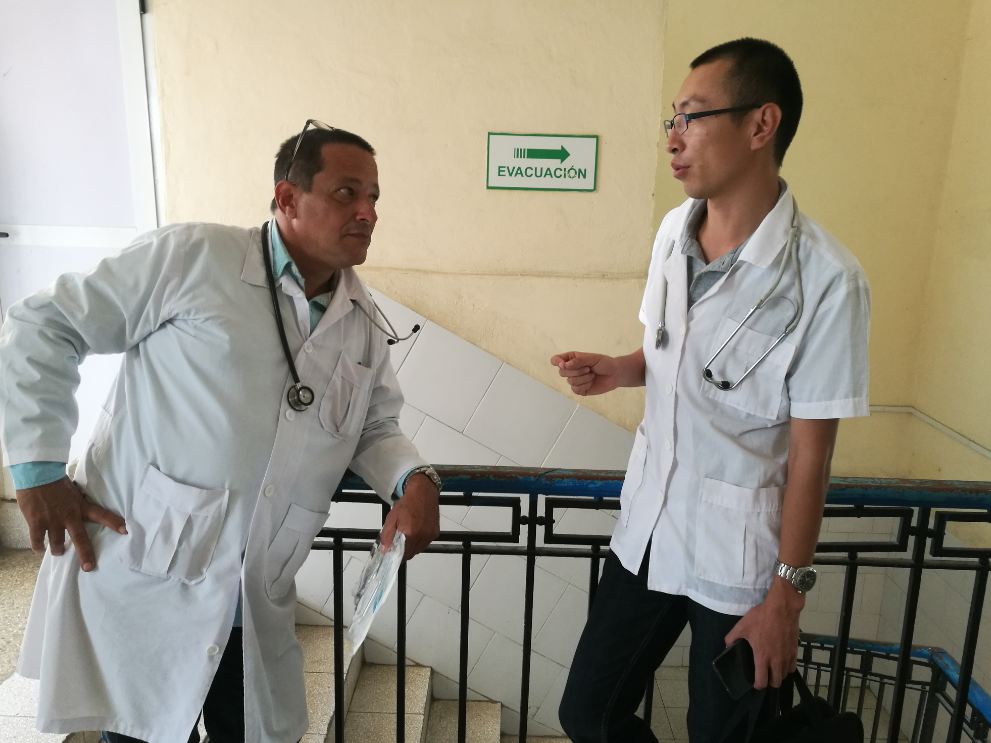Medical students warm to studies in Cuba
More than 3,000 Chinese students from 12 central and western provinces have studied in the country with a Cuban government scholarship. They have since gone on to become doctors and nurses back home.

Kou (R) chats with a physician. [Photo provided to China Daily]
"That's why Cubans love to have some small talk with doctors, as they take them as their friends. There are not that many patients in hospitals as quite a number of them have received timely treatment in the community where they live," Kou said.
Every Cuban is assigned a health number and has an annual care plan developed for them based on their level of risk. As a result, most illnesses can be detected or prevented at an early stage.
Li said: "For instance, a number of patients come to the ophthalmology department for regular half-year examinations by appointment for dilated pupils. Although China has a very high instance of myopia, only a few people recognize the necessity for such periodic checks.
"Although the medical equipment and treatment in China is much better than what we have in Cuba, medical students have fewer chances to practice," Li said. "And this is one of the major strengths of studying medicine in Cuba."
What impressed Li the most was her experience in helping to deliver a baby when she served as an intern at a local hospital during her fourth year of learning gynecology and obstetrics.
"My teacher was beside me to tell me what to do next, but I was so nervous and was sweating," she said. "I even found my legs shaking and I burst into tears when I finally held the baby. This was the first time I felt the great joy brought by studying healthcare. I am now more determined to further pursue my studies and am glad I decided to learn medicine in Cuba."
When Li began her studies at the Central Institute of Ophthalmology Ramon Pando Ferrer, the lecturer taught students how to use delicate devices.
"The lecturer even loaned me her research materials, written notes and e-books, which makes me feel we are in a big family," Li said.
For Xu Shicheng, a researcher with the Latin America Institute of the Chinese Academy of Social Sciences, there are many "successful experiences" that China can learn from the Cuban healthcare system.
But the Caribbean country also faces challenges. The US embargo resulted in a lack of essential drugs, and no new medical facilities. The government faced a huge financial burden in providing a free healthcare system, and as private hospitals are not allowed, a reduced level of competition has led to low efficiency in public ones.
Gail Reed, founder of Medical Education Cooperation with Cuba, a nonprofit organization, was quoted by Tampa Bay Times, a Florida newspaper, as saying, "You can get a heart transplant (in Cuba) but might have to bring your own sheets to the hospital."

